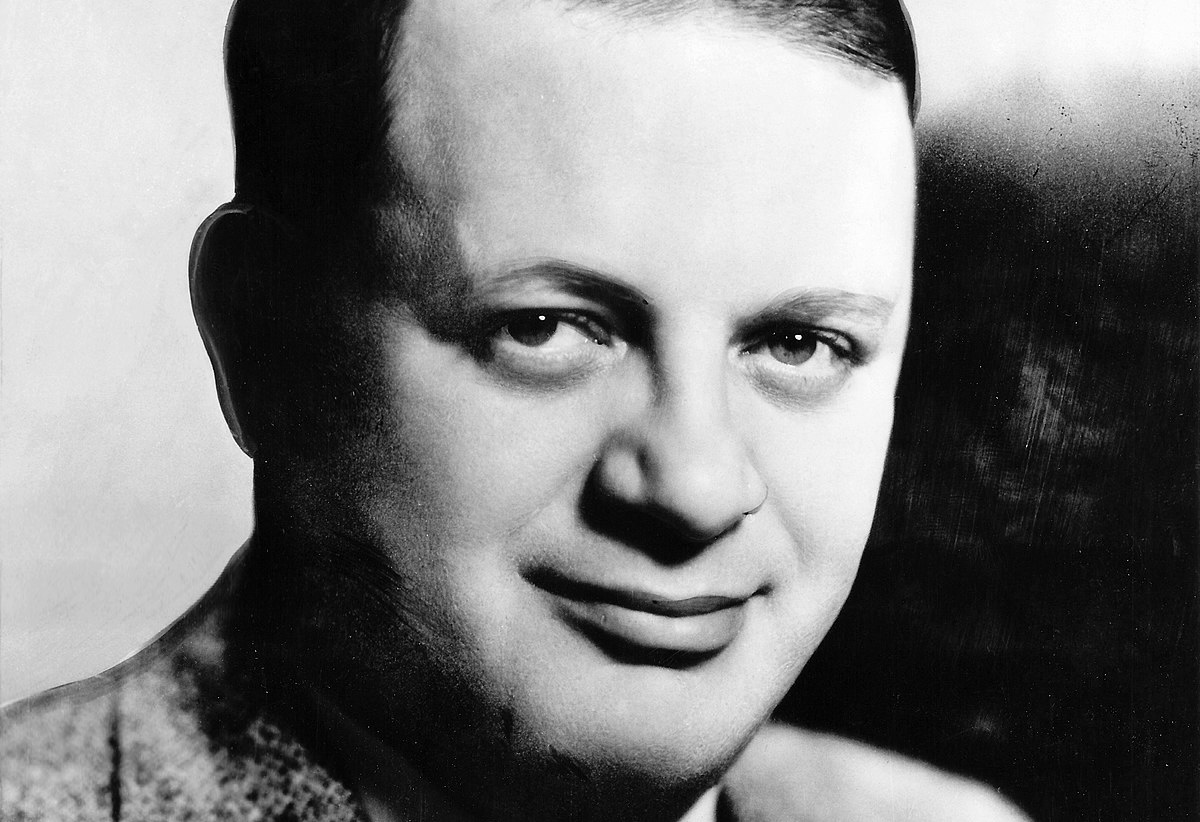
Herman J. Mankiewicz was a legendary screenwriter whose name often pops up in discussions about classic Hollywood. Ever wondered who penned the iconic film "Citizen Kane"? Mankiewicz did! Known for his sharp wit and brilliant dialogue, he left an indelible mark on the film industry. But there's more to him than just his work on "Citizen Kane." Did you know he was also a journalist and a critic before diving into screenwriting? Or that he had a knack for gambling and often found himself in financial trouble? Dive into these 35 intriguing facts about Herman J. Mankiewicz to get a fuller picture of this fascinating figure.
Key Takeaways:
- Herman J. Mankiewicz, also known as "Mank," was a witty and influential screenwriter who co-wrote the iconic film "Citizen Kane" and helped elevate the status of screenwriters in Hollywood.
- Despite his personal struggles, Mankiewicz's legacy lives on through his groundbreaking work on "Citizen Kane," which continues to inspire filmmakers and writers worldwide.
Early Life and Education
Herman J. Mankiewicz, often known as "Mank," was a fascinating figure in Hollywood's Golden Age. His early life and education set the stage for his illustrious career.
- Born on November 7, 1897, in New York City, Mankiewicz grew up in a Jewish family with German roots.
- His father, Franz Mankiewicz, was a schoolteacher, and his mother, Johanna, was a homemaker.
- Mankiewicz attended Columbia University, where he studied literature and journalism.
- At Columbia, he was the editor of the college's humor magazine, "Jester."
- He served in the U.S. Army during World War I, working in the Signal Corps.
Career Beginnings
Before making a name in Hollywood, Mankiewicz had a diverse career in journalism and theater.
- He started as a reporter for the Chicago Tribune.
- Mankiewicz worked as a drama critic for "The New York Times" and "The New Yorker."
- He moved to Berlin in the 1920s, where he wrote for the "Chicago Tribune" and "The New York Times."
- In Berlin, he became friends with notable writers like F. Scott Fitzgerald and Ernest Hemingway.
- Mankiewicz returned to the U.S. and began writing for Broadway plays.
Hollywood Success
Mankiewicz's transition to Hollywood marked the beginning of his most famous work.
- He joined Paramount Pictures in 1926 as a screenwriter.
- Mankiewicz was known for his sharp wit and biting humor.
- He wrote the screenplay for "The Royal Family of Broadway" in 1930.
- Mankiewicz co-wrote the Marx Brothers' film "Monkey Business" in 1931.
- He worked on the screenplay for "Dinner at Eight" in 1933.
Citizen Kane
Mankiewicz's most notable achievement was his work on "Citizen Kane," often hailed as one of the greatest films ever made.
- He co-wrote the screenplay for "Citizen Kane" with Orson Welles.
- The film was released in 1941 and is loosely based on the life of William Randolph Hearst.
- Mankiewicz and Welles won the Academy Award for Best Original Screenplay for "Citizen Kane."
- The film's innovative narrative structure and deep focus cinematography were groundbreaking.
- Mankiewicz's contribution to the screenplay was initially overshadowed by Welles' directorial acclaim.
Personal Life
Mankiewicz's personal life was as colorful as his professional one.
- He married Sara Aaronson in 1920, and they had three children.
- His brother, Joseph L. Mankiewicz, was also a successful screenwriter and director.
- Mankiewicz struggled with alcoholism throughout his life.
- He was known for his sharp tongue and often clashed with studio executives.
- Despite his personal demons, he maintained close friendships with many Hollywood luminaries.
Legacy
Mankiewicz's legacy continues to influence filmmakers and writers today.
- He is often credited with helping to elevate the status of screenwriters in Hollywood.
- Mankiewicz's work on "Citizen Kane" is studied in film schools worldwide.
- His wit and humor have inspired generations of writers.
- The 2020 film "Mank," directed by David Fincher, chronicles his life and work on "Citizen Kane."
- Gary Oldman portrayed Mankiewicz in the film, earning critical acclaim for his performance.
Final Years and Death
Mankiewicz's final years were marked by declining health but continued creativity.
- He continued to write screenplays and work in Hollywood until his death.
- Mankiewicz suffered from various health issues, including alcoholism-related complications.
- He passed away on March 5, 1953, at the age of 55.
- Mankiewicz was buried in Forest Lawn Memorial Park in Glendale, California.
- His contributions to cinema remain celebrated, and his work continues to be a benchmark for screenwriters.
The Legacy of Herman J. Mankiewicz
Herman J. Mankiewicz left an indelible mark on Hollywood. Known for his sharp wit and brilliant screenwriting, he played a pivotal role in shaping classic cinema. His work on "Citizen Kane" remains a testament to his talent, earning him an Oscar and cementing his place in film history. Beyond his professional achievements, Mankiewicz's life was filled with fascinating anecdotes, from his friendships with literary giants to his struggles with addiction. These stories paint a picture of a complex, multifaceted individual who lived life to the fullest. As we reflect on his contributions, it's clear that Mankiewicz's influence extends far beyond the silver screen. His legacy continues to inspire writers, filmmakers, and cinephiles around the world. Whether you're a seasoned film buff or a casual moviegoer, there's no denying the lasting impact of Herman J. Mankiewicz on the world of cinema.
Frequently Asked Questions
Was this page helpful?
Our commitment to delivering trustworthy and engaging content is at the heart of what we do. Each fact on our site is contributed by real users like you, bringing a wealth of diverse insights and information. To ensure the highest standards of accuracy and reliability, our dedicated editors meticulously review each submission. This process guarantees that the facts we share are not only fascinating but also credible. Trust in our commitment to quality and authenticity as you explore and learn with us.
